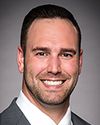Thank you, Mr. Chair.
Thank you to the farmers and the farm representatives who are here today.
I'd like to start first by thanking Ray for the farming he's doing. My grandfather was a farmer. My Dutch grandfather, Andres Posthumus, came over and farmed, and I spent a lot of time on farms. My uncles and my cousins are farmers. I want to make sure that people understand that we all appreciate what farmers are doing in Canada. We appreciate what you're doing.
I understand that your farm actually has 12,000 to 14,000 animals on it, from the testimony you gave in the court, so I'm assuming yours is one of those larger farms. That's great, and thank you for doing that.
Thank you, Dr. Rastogi, for clarifying that Humane Canada and SPCAs work for the welfare and protection of animals and do not advocate for an end to animal farming, because it's been misrepresented in this committee several times that we all want to end animal farming. Clearly that's not the case.
Thank you also for emphasizing that the distrust is not in farmers but in the system of agriculture. I think we all know the majority of farmers are good and that they care about their animals, but as in any industry, there are a few bad actors.
My question is whether you think this legislation will increase public trust in the system. Ray mentioned that he has a hard time talking about being a farmer now because people are looking at him askance.
Do you think this legislation is going to help people have trust in what's happening in the system, or do you think it's going to do the opposite?





